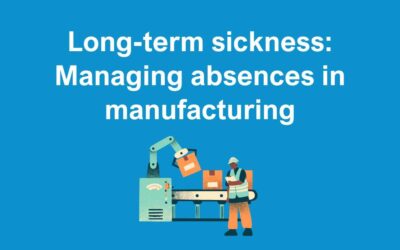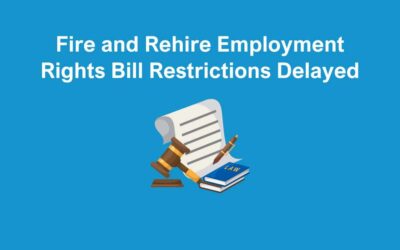We have seen more and more clients faced with the dilemma of making a Counter Offer if an employee resigns.
It’s not uncommon for employers to feel a sense of panic when an employee resigns. They might start to wonder who will take over their workload, how long it will take to find a replacement, and how much it will cost to onboard someone new. In their haste to retain their employee, some employers might be tempted to make a counter offer, often in the form of a salary increase, to convince them to stay. However, this can be a mistake for several reasons.
An employee’s reasons for leaving are not always related to salary.
While it might seem like offering more money will solve the problem, the reality is that there could be other factors at play. For example, the employee might be dissatisfied with their job duties, feel undervalued or unappreciated, or have issues with management or colleagues. A counter offer might provide a short-term solution to keep the employee in the role, but it doesn’t address the underlying issues that led to their resignation in the first place.
Making a Counter Offer if an employee resigns sets a precedent for future resignations.
If an employer consistently offers more money to employees who threaten to leave, it can create a culture where employees feel like they have to threaten to resign to get a pay raise. This can lead to resentment and mistrust between employees and management and can ultimately harm the company’s bottom line.
Making a counter offer can actually be detrimental to the employee in the long run.
If they accept the counter offer and stay in the role, they might feel like they’re only there because of the extra money, rather than because they genuinely want to be there. This can lead to a lack of motivation and engagement, which can ultimately impact their job performance and the company’s overall success.
I’ve been in the situation before where I did accept a counter offer for more money, but ended up leaving around 12 months later anyway. The same reasons for leaving were still there, and I’ve seen this many times over the years in lots of businesses.
Why You Shouldn’t Accept a Retracted Resignation
On the other hand, what should you do if an employee retracts their resignation after you’ve already started the process of finding a replacement? While it might be tempting to welcome them back with open arms, it’s important to consider the impact this could have on the team and the company as a whole. It’s important to consider the impact this can have on the company’s culture, as well as the potential risks involved.
Accepting a retracted resignation can create resentment among other team members.
If the employee who resigned was planning on leaving, other team members might have started to mentally prepare for their departure and adjust to the idea of working without them. If they suddenly come back, it can disrupt the team’s dynamics and create confusion and frustration.
Retracting their resignation due to second thoughts
It’s important to remember that if an employee is retracting their resignation due to second thoughts about their new employer, the reasons for leaving your company are still there. While it’s natural to feel flattered that the employee wants to stay, it’s important to take a step back and consider the long-term implications. If the employee was unhappy enough to resign in the first place, it’s likely that there were deeper issues at play. If these underlying issues are not addressed, the employee may eventually become dissatisfied again and resign for good, leaving you back at square one.
Negative impact on the company’s culture
Secondly, accepting a retracted resignation based on second thoughts at a new employer can have a negative impact on the company’s culture. Other employees may start to feel like they don’t have a clear understanding of what is expected of them or what the company stands for. It may also create a sense of instability, which can lead to employees feeling less secure in their roles. This can be especially true if the retracted resignation is due to external factors, such as a more attractive job offer, rather than internal reasons.
Retracted resignation can be costly
Lastly, accepting a retracted resignation can be costly in terms of time and resources. If the employer has already started the process of finding a replacement, it can be frustrating and demoralising to have to start the recruitment process all over again. This can lead to lost productivity, decreased morale, and even increased turnover if other employees start to feel like the company is not stable.
In conclusion
while it’s tempting to accept a retracted resignation, it’s important to consider the long-term implications for the company and its culture. If the employee is retracting their resignation based on second thoughts at a new employer, it’s important to address the underlying issues that led to their resignation in the first place. This may involve having difficult conversations about job satisfaction, work-life balance, or career development. Ultimately, the goal should be to create a positive and engaged workforce that is committed to the company’s success, rather than relying on short-term fixes.
Contact Us
If you have any further questions and would like our support, contact us.







